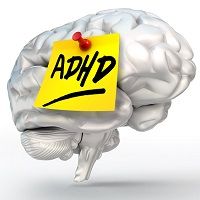Article
Collaborative Care For Pediatric Behavior Disorders is Cost Effective and Improves Clinical Outcomes
Author(s):
Collaborative care models have been shown to yield among the highest improvement rates for child behavioral problems.

A random control study determined that doctor-office collaborative care (DOCC) focused on pediatric behavior healthcare services in primary pediatric care settings, not only improves clinical effectiveness of treatment for pediatric patients, but is cost effective during both the initial intervention and post-intervention follow-up periods when compared to patients receiving enhanced usual care (EUC).
The random control trial, led by RAND corporation senior policy researcher Hao Yu, PhD, was supported by grants from the US Department of Health and Human Services, National Institutes of Health, and National Institute of Mental Health, collected financial records and cost information about 321 pediatric patients, and insurance cost information on 57 of those 321 patients in pre-and post-intervention periods.
Patients were enrolled in a 6-month intervention for pediatric behavior problems and attention-deficit/hyperactivity disorder (ADHD).
Participants between the ages of 5—12 with diagnosed behavioral problems, ADHD, and/or anxiety concerns were recruited from 8 pediatric practices in Pennsylvania. Pediatric practices were randomly assigned to 2 groups, with 160 patients assigned to care in DOCC settings and 161 assigned to EUC settings. Care managers were assigned to provide services for both groups, conducting screenings, assessments and psychoeducation before providing suggestions for interventions.
The group assigned to DOCC setting "incorporated a trained care manager who collaborated with pediatricians and families to enhance interdisciplinary communication and access to personalized, evidence-based psychosocial and psychopharmacologic interventions." Those patients assigned to the EUC setting were "referred to specialty mental health providers in local communities."
Cost-analysis completed post-intervention, which included financial records, as well as costs incurred by the study to prepare for and then implement the 2 treatment regimes, discovered that although the DOCC group incurred higher training costs (95% confidence intervals for all numbers) at an average of $4,885.74 DOCC versus $1,651.86 EUC, and higher overall costs during the intervention period nearly double that of the EUC ($81,704 DOCC versus $41,643 EUC) the average cost per patient was lower with DOCC ($520) in comparison to EUC ($595).
Study data also determined that although the 2 groups initially had similar community mental health service costs, the DOCC group had significantly lower costs during and post-intervention with EUC community mental health services costing more during the intervention ($599.01 versus $87.51, p< .05), 6-months post-intervention ($985.31 versus $279.55, p < .05), and 12-months post intervention ($1324.71 versus 453.14, p < .05).
The study's findings "reveal the [DOCC] model's strong potential of cost savings in term of both per patient costs for treatment during the intervention period" and community mental health care costs incurred during 6- and 12- month follow up periods.
The study also demonstrated significant clinical benefits to the adoption of DOCC models according to data collected from healthcare records, in the form of "significantly greater reductions in the severity of behavior problems, hyperactivity and internalizing problems, greater remission of behavior and internalizing problems, a higher proportion of overall treatment responders, fewer parents rating their children as difficult, fewer parent-child dysfunctional interactions, and less parental distress related to child behavior."
DOCC, Yu suggests, can contribute to providing pediatric mental/behavioral healthcare access to children with limited resources for care, and the growing "growing empirical evidence supports the efficacy of these integrated care models." Yu writes that collaborative care models have been shown to yield among the highest improvement rates for child behavioral problems. The data from this study adds further support to the greater clinical effectiveness in DOCC in comparison to EUC models.
Analysis of the "economic viability of integrated care models, such as the DOCC, is important as the implementation of the Affordable Care Act is expanding insurance coverage for mental health care and incentivizing integrated care for people with mental illness."
Yu and colleagues suggest that studies which can provide data on the economic impact of DOCC and other forms of mental health and primary care integration, will be influential to the establishment of more integrated care models to address the unique needs of children with mental, behavioral, or substance-use disorders.
The potential benefits of the DOCC model should be considered by both clinicians and policy makers, as "attention to these developments may provide practical knowledge to support system change innovations that can enhance both health care and health outcomes."
"Collaborative Mental Health Care for Pediatric Behavior Disorders in Primary Care: Does It Reduce Mental Health Care Costs?" was published in the March 2017 issue of Families, Systems & Health.





